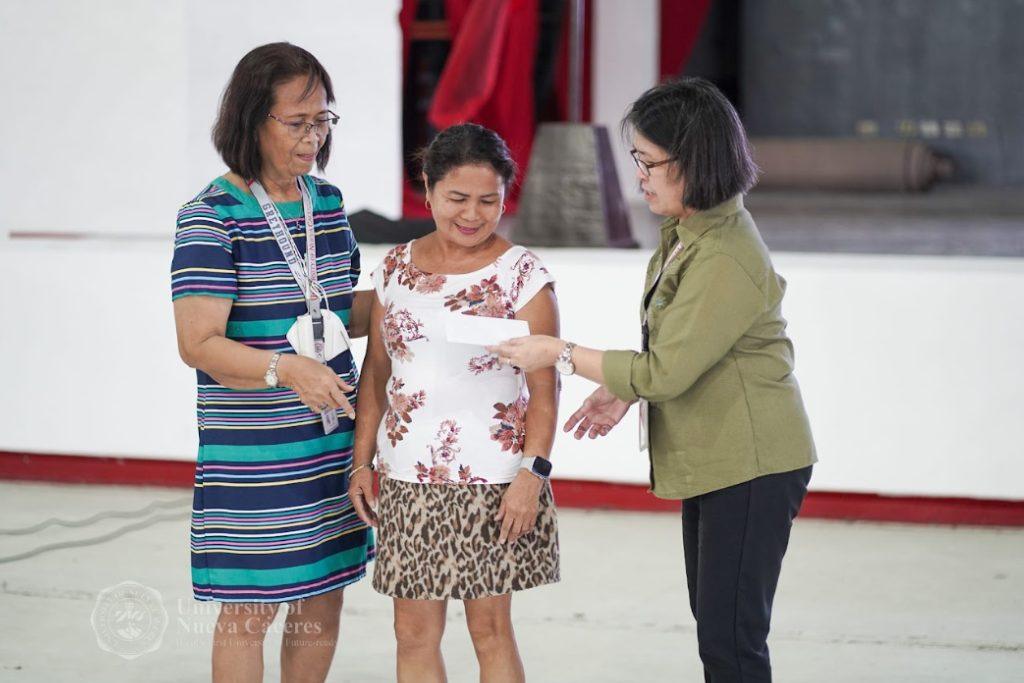
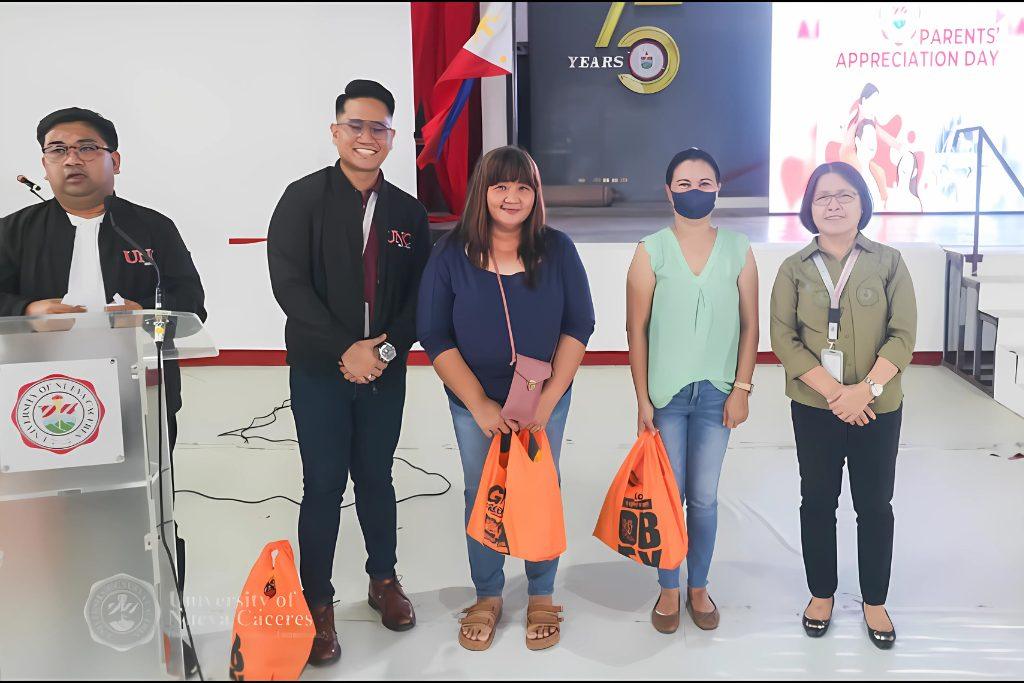
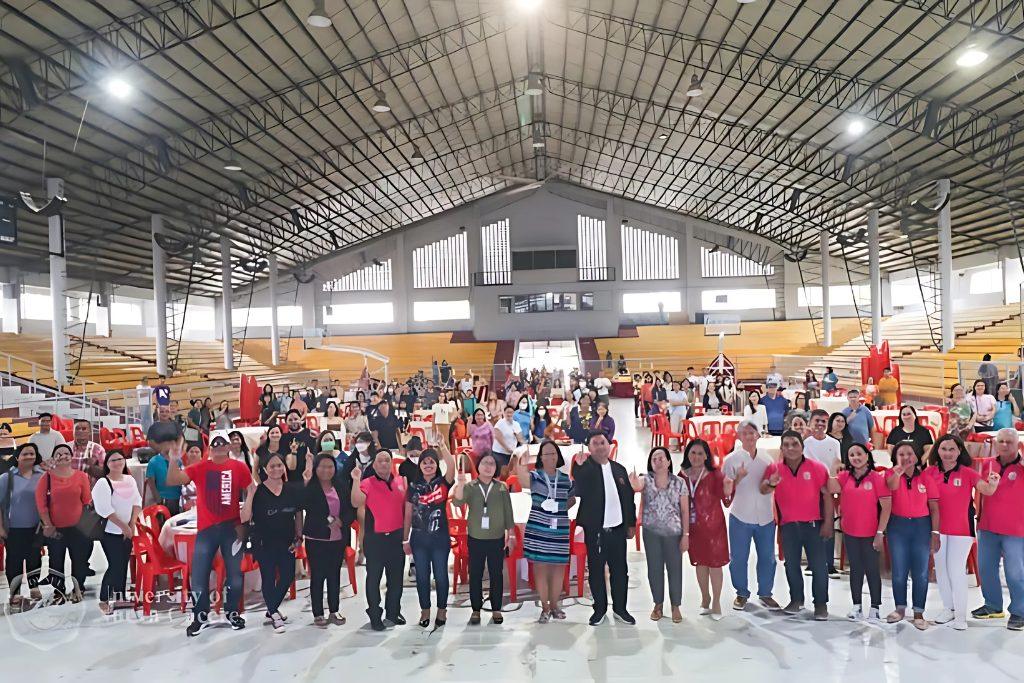
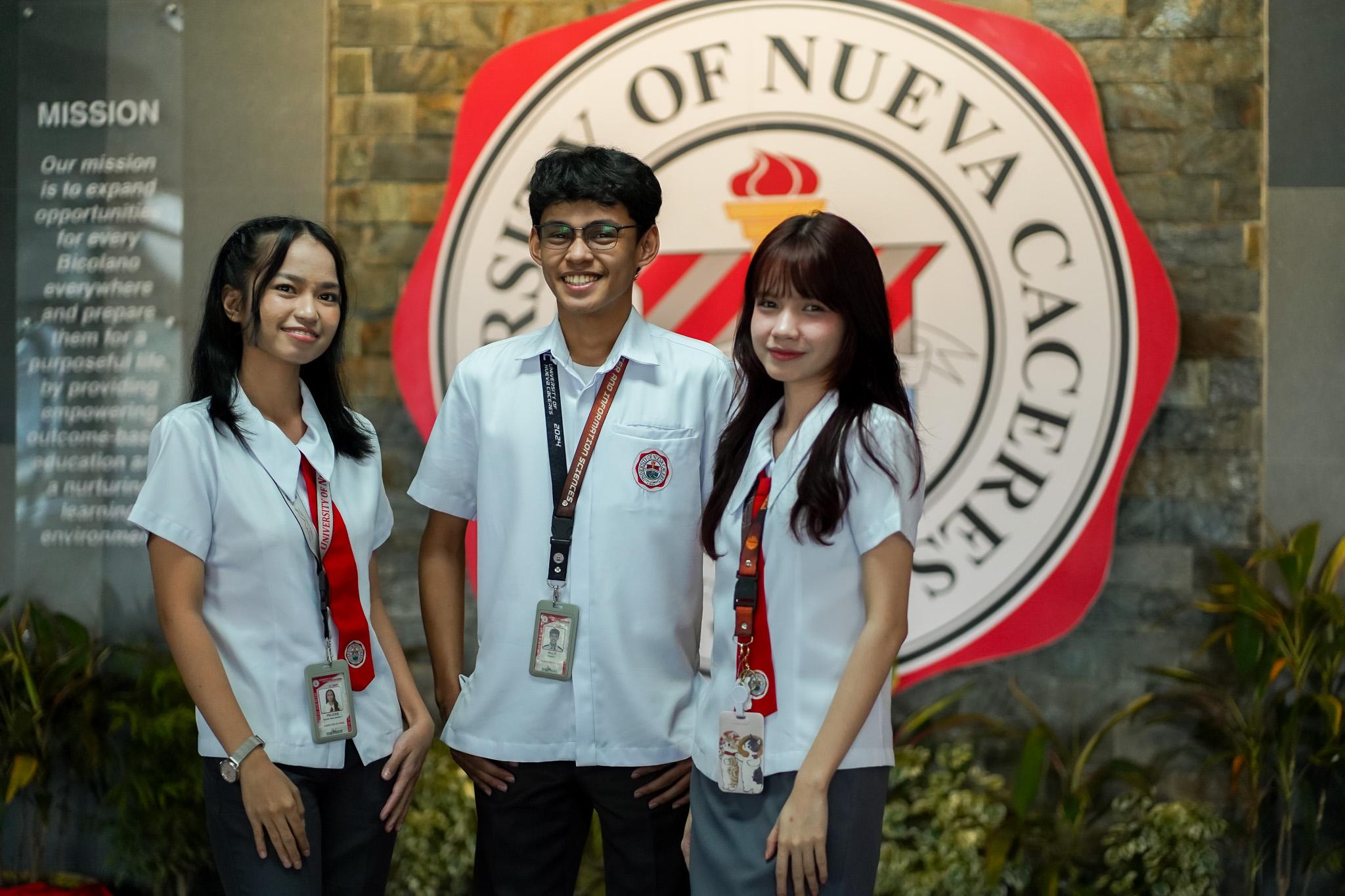
1. Upon graduation the Alumni shall possess the intelectual qualities,interpersonal skills and technical competence to make them a quality graduate and globally competitive.
2. Throughout his/her time as a professional Nurse they will continously grow dynamically and professionaly will update with the trends and challenges in Nursing.
1. Apply knowledge of physical, social, natural science and humanities in the practice of nursing in accordance with existing laws, legal, ethical and moral principles.
2. Utilize the nursing process in performing safe, appropriate and holistic care to individuals, families, population groups and communities observing the core value of a nurse.
3. Apply guidelines and principles of evidence based practice in the delivery of care.
4. Practice beginning management and leadership skills using the system approach, and be able to produce research with an experienced researcher in nursing and other related fields.
5. Communicate and work effectively in collaboration with inter-, intra-, and multidisciplinary and multi-cultural teams.
6. Engage in life- long learning, incorporating evidence-based practice both national and global developmental issues innovating the health care system.
7. Develop entrepreneurial and techno-intellegent skills in delivery of health-care.

Within three to five years after graduation, graduates of BS Electrical Engineering shall be:
1 Utilize one’s technical expertise in the practice of engineering profession.
2 Advance one’s technical skills through life – long learning engagements.
3 Contribute to nation building assuming leadership responsibilities
Apply knowledge of mathematics and science to solve complex engineering problems;
Develop and conduct appropriate experimentation, analyze and interpret data;
Design a system, component, or process to meet desired needs within realistic constraints such as economic, environmental, social, political, ethical, health and safety, manufacturability. and sustainability, in accordance with standards;
Function effectively on multi-disciplinary and multi-cultural teams that establish goals, plan tasks, and meet deadlines; (based on PQF Level 6 descriptor);
Identify, formulate and solve complex problems in electrical engineering;
Recognize ethical and professional responsibilities in engineering practice;
Communicate effectively with a range of audiences;
Understand the impact of engineering solutions in a global, economic, environmental, and societal context;
Recognize the need for additional knowledge and engage in lifelong learning;
Articulate and discuss the latest developments in the field of electrical engineering; (PQF Level 6 descriptor);
Apply techniques, skills, and modern engineering tools necessary for electrical engineering practice; and
Demonstrate knowledge and understanding of engineering and management principles as a member and/or leader in a team to manage projects in multi-disciplinary environments.
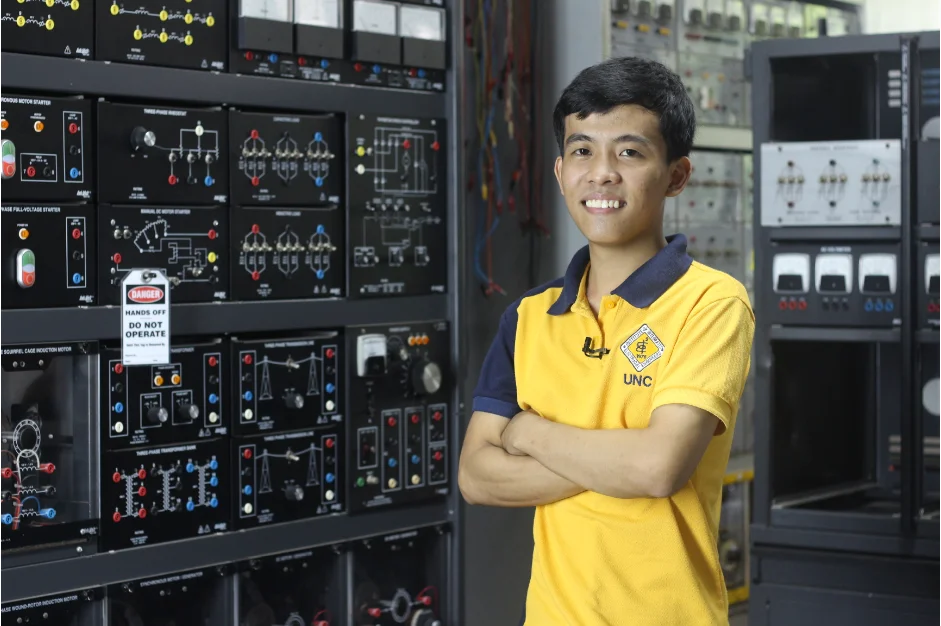
Within three to five years after graduation, graduates of BS Electronics and Communicaitons Engineering shall be:
1. Utilize one’s technical expertise in the practice of engineering profession.
2. Advance one’s technical skills through life – long learning engagements.
3. Contribute to nation building assuming leadership responsibilities.
Apply knowledge of mathematics and science to solve engineering problems;
Design and conduct experiments, as well as to analyze and interpret data;
Design a system, component, or process to meet desired needs within realistic constraints such as economic, environmental, social, political, ethical, health and safety, manufacturability, and sustainability, in accordance with standards
Function on multidisciplinary teams;
Identify, formulate, and solve engineering problems;
Apply professional and ethical responsibility
Communicate effectively
Identify the impact of engineering solutions in a global, economic, environmental, and societal context;
Recognize the need for, and an ability to engage in life-long learning;
Apply knowledge of contemporary issues
Use techniques, skills, and modern engineering tools necessary for engineering practice
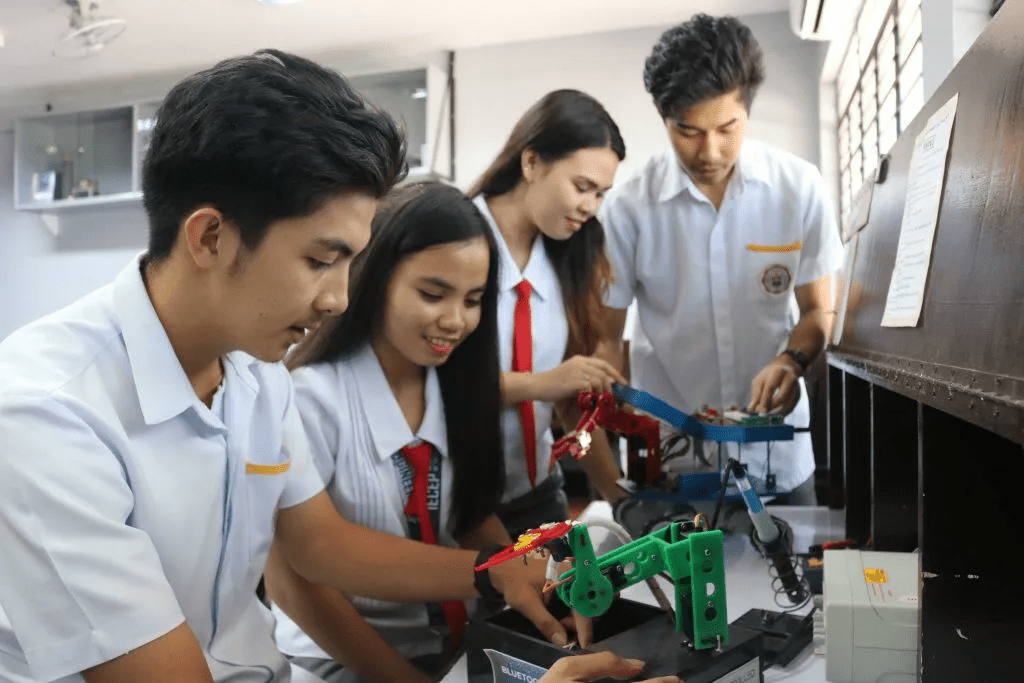
Within three to five years after graduation, graduates of BS Computer Engineering shall be:
1. Utilize one’s technical expertise in the practice of engineering profession.
2. Advance one’s technical skills through life – long learning engagements.
3. Contribute to nation building assuming leadership responsibilities.
Apply knowledge of mathematics and sciences to solve computer engineering problems;
Develop and conduct appropriate experimentation;
Design systems, components, or processes to meet desired needs within realistic constraints, such as economic, environmental, social, political, ethical, health and safety, manufacturability, and sustainability, in accordance with standards;
Function in multidisciplinary and multi-cultural teams;
Solve computer engineering problems;
Recognize professional and ethical responsibility;
Communicate computer engineering activities with the engineering community and with society at large;
Understand the impact of computer engineering solutions in a global, economic, environmental, and societal context;
Recognize the need for life-long learning;
Understand contemporary issues;
Use the appropriate techniques, skills and modern engineering tools necessary for the practice of computer engineering;
Demonstrate knowledge of engineering and management principles as a member and/or leader on projects in mutidisciplinary environments.
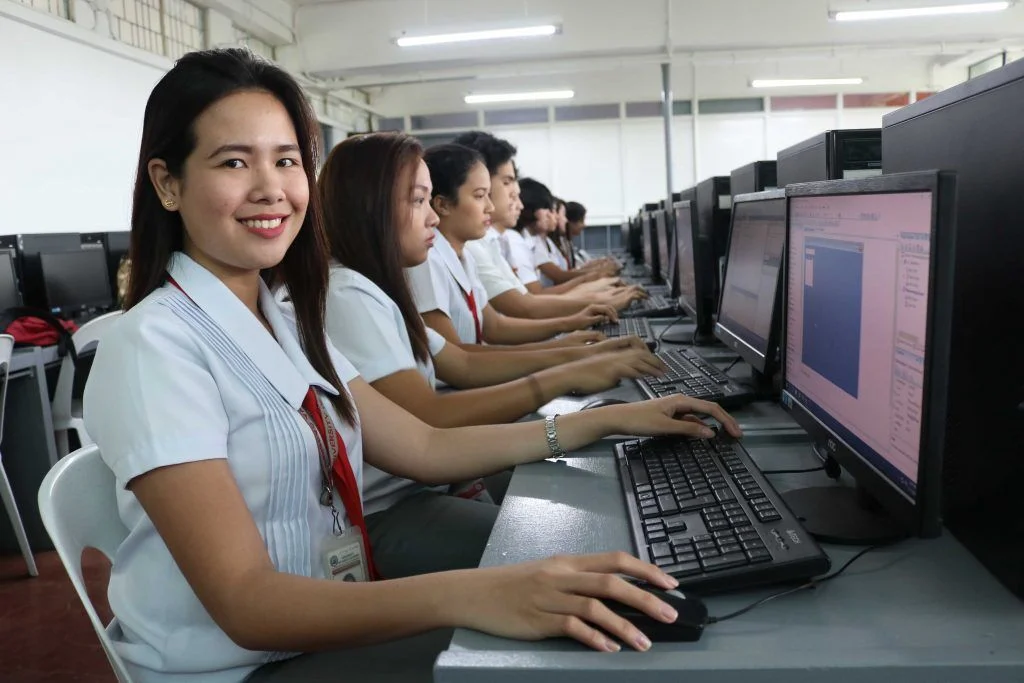
Within three to five years after graduation, graduates of BS Mechanical Engineering shall be:
1. Utilize one’s technical expertise in the practice of engineering profession.
2. Advance one’s technical skills through life – long learning engagements.
3. Contribute to nation building assuming leadership responsibilities.
Apply knowledge of mathematics and sciences to solve electronics engineering problems;
Conduct experiments, as well as to analyze and interpret data;
Design systems, components, or processes to meet desired needs within realistic constraints, such as economic, environmental, social, political, ethical, health and safety, manufacturability, and sustainability, in accordance with standards;
Function in multidisciplinary and multi-cultural teams;
Solve mechanical engineering problems;
Realize professional and ethical responsibility;
Communicate mechanical engineering activities with the engineering community and with society at large;
Know the impact of mechanical engineering solutions in a global, economic, environmental, and societal context;
Recognize the need for, and engage in life-long learning;
Know contemporary issues;
Use the appropriate techniques, skills and modern engineering tools necessary for the practice of mechanical engineering;
Know engineering and management principles as a member and leader of a team, and to manage projects in a multidisciplinary environment;
Know at least one specialized field of mechanical engineering practice.
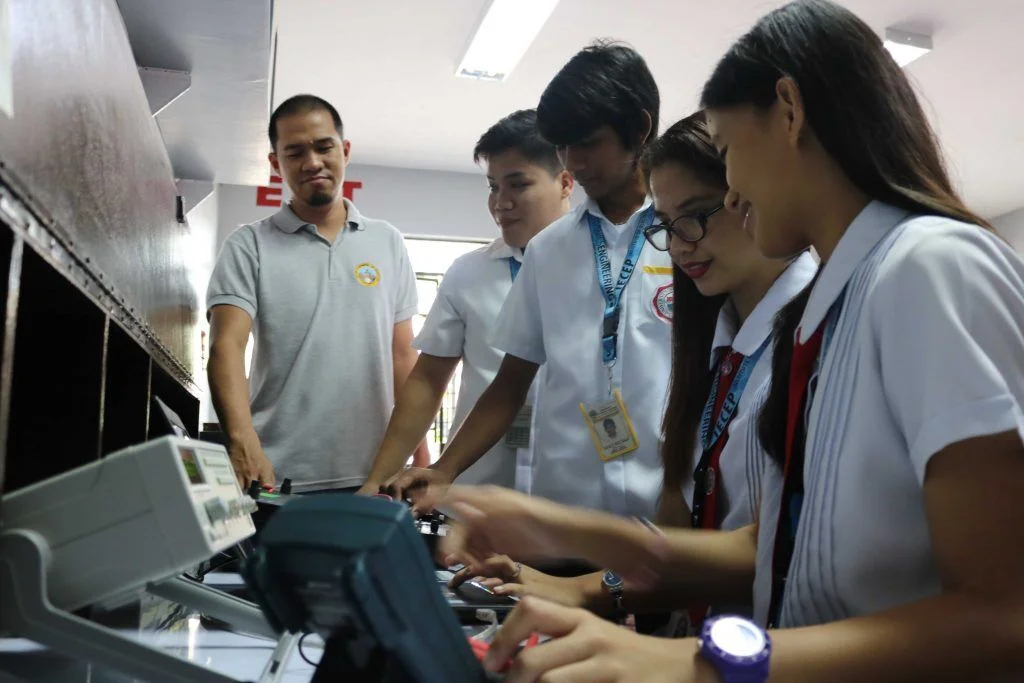
Within three to five years after graduation, graduates of BS Civil Engineering shall be:
1. Utilize one’s technical expertise in the practice of engineering profession.
2. Advance one’s technical skills through life – long learning engagements.
3. Contribute to nation building assuming leadership responsibilities.
Creation of architectural solutions by applying knowledge in history, theory, planning, building technology and utilities, structural concepts and professional practice. (design, BT, UT, PP, ES/AS, HOA/TOA, PLN)
Use of concepts and principles from specialized fields and allied disciplines into various architectural problems. (LA, IA, HC, PLN, EMP, BU 1 -2-3, ES/AS, TOA)
Preparation of contract documents, technical reports, and other legal documents used in architectural practice adhering to applicable laws, standards, and regulations. (DES, PP 1-2-3, BT 3, BU 1-2-3-4-5, HSNG, PLN, ENG3)
Interpretation and application of relevant laws, codes, charters, and standards of architecture and the built environment. (DES, BT 1, HSNG, BU 1-2-3, PLN)
Application of research methods to address architectural problems. (RMA, ENG 3)
Use of various information and communication technology (ICT) media for architectural solutions, presentations and techniques In design and construction. (VT 1-2-3, CADD 1-2)
Acquisition of entrepreneurial and business acumen relevant to Architecture practice. Involvement in the management of construction works and Building administration. (PP, BT, BU, Const. Mgmt. ES/AS)
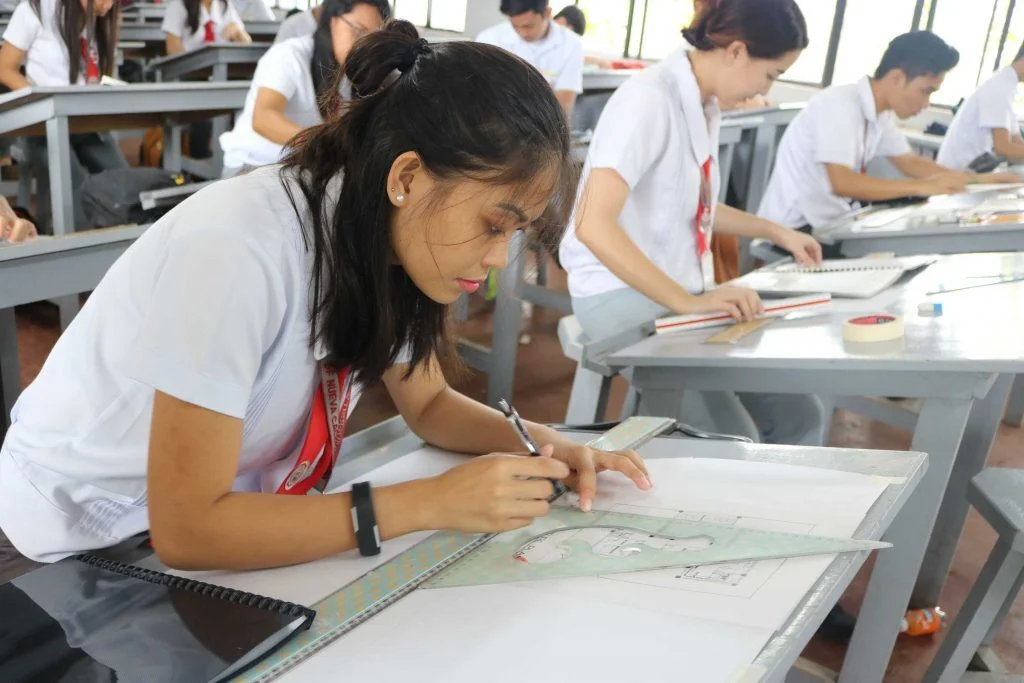
Within three to five years after graduation, graduates of BS Civil Engineering shall be:
1. Utilize one’s technical expertise in the practice of engineering profession.
2. Advance one’s technical skills through life – long learning engagements.
3. Contribute to nation building assuming leadership responsibilities.
a.) Apply knowledge of mathematics and sciences to solve civil engineering problems;
b.) Develop and conduct appropriate experimentation;
c.) Design systems, components, or processes to meet desired needs within realistic constraints, such as economic, environmental, social, political, ethical, health and safety, manufacturability, and sustainability, in accordance with standards;
d.) Function in multidisciplinary and multi-cultural teams;
e.) Solve civil engineering problems;
f.) Recognize professional and ethical responsibility;
g.) Communicate civil engineering activities with the engineering community and with society at large;
h.) Understand the impact of civil engineering solutions in a global, economic, environmental, and societal context;
i.) Recognize the need for life-long learning;
j.) Understand contemporary issues;
k.) Use the appropriate techniques, skills and modern engineering tools necessary for the practice of civil engineering;
l.) Demonstrate knowledge of engineering and management principles as a member and/or leader on projects in mutidisciplinary environments.
m.) Know at least one specialized field of civil engineering practice
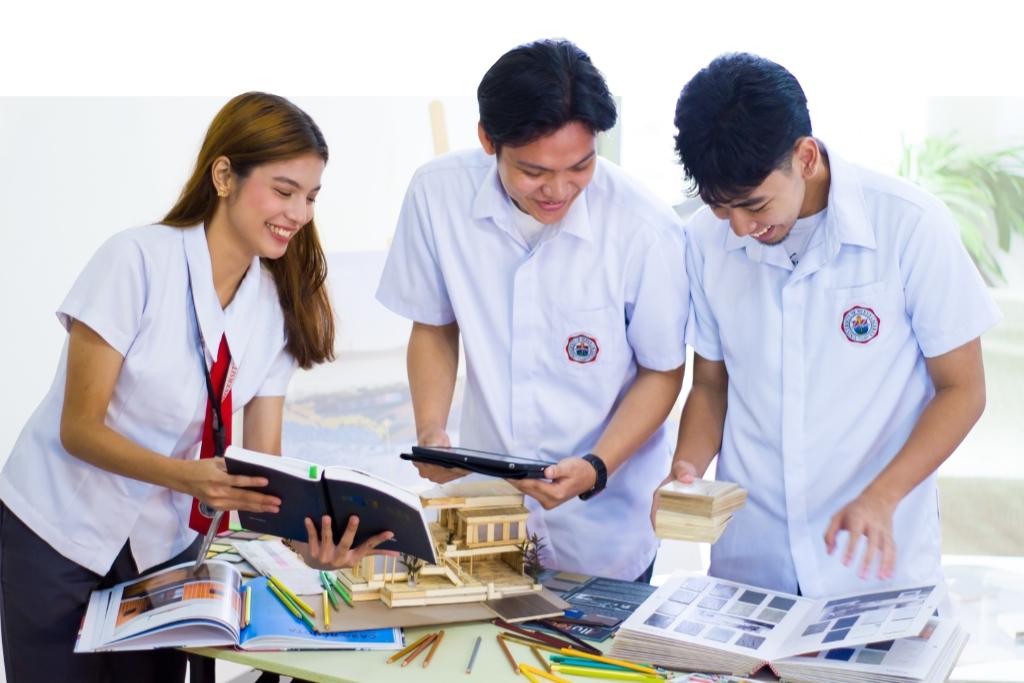
Within three to five years after graduation, graduates of BS Civil Engineering shall be:
1. Utilize one’s technical expertise in the practice of engineering profession.
2. Advance one’s technical skills through life – long learning engagements.
3. Contribute to nation building assuming leadership responsibilities.
a Apply knowledge of mathematics and sciences to solve civil engineering problems;
b Develop and conduct appropriate experimentation;
c Design systems, components, or processes to meet desired needs within realistic constraints, such as economic, environmental, social, political, ethical, health and safety, manufacturability, and sustainability, in accordance with standards;
d Function in multidisciplinary and multi-cultural teams;
e Solve civil engineering problems;
f Recognize professional and ethical responsibility;
g Communicate civil engineering activities with the engineering community and with society at large;
h Understand the impact of civil engineering solutions in a global, economic, environmental, and societal context;
i Recognize the need for life-long learning;
j Understand contemporary issues;
k Use the appropriate techniques, skills and modern engineering tools necessary for the practice of civil engineering;
l Demonstrate knowledge of engineering and management principles as a member and/or leader on projects in multidisciplinary environments.
m Know at least one specialized field of civil engineering practice
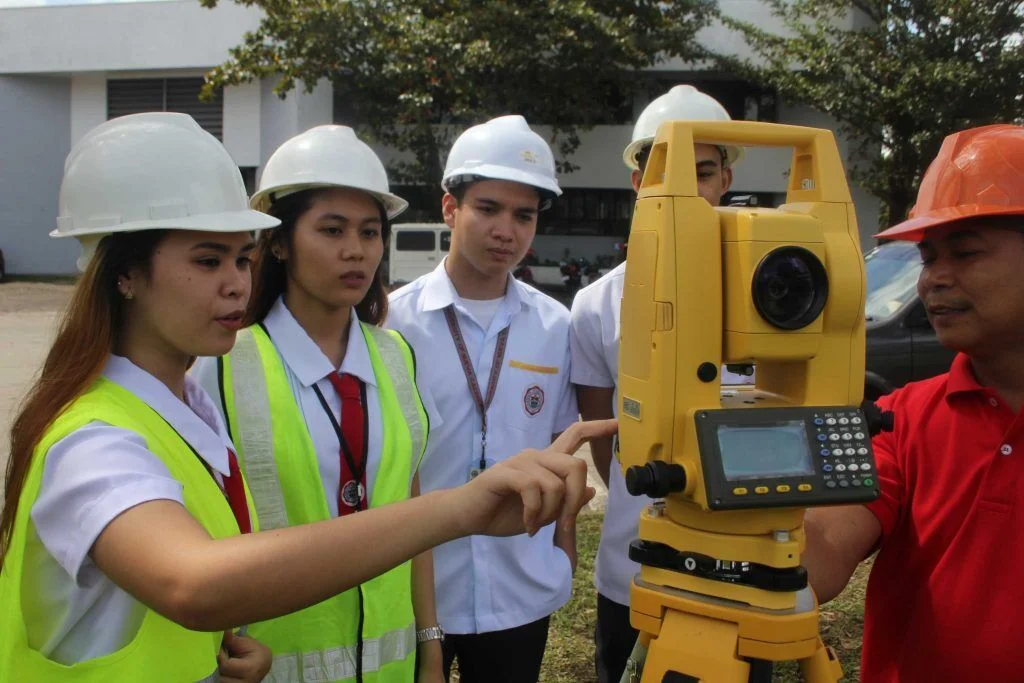
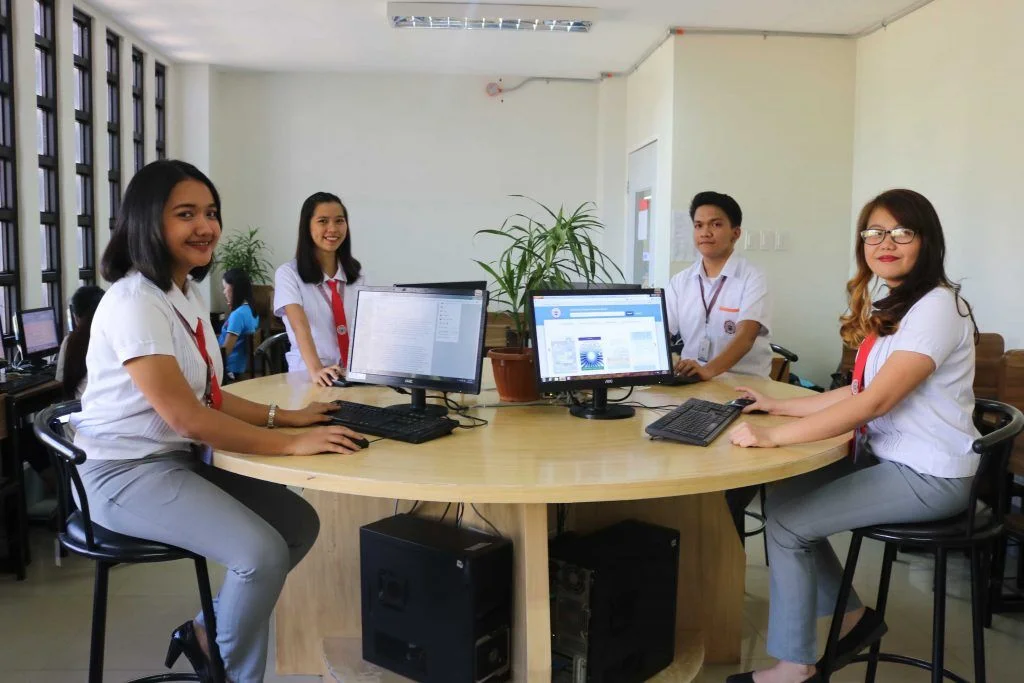
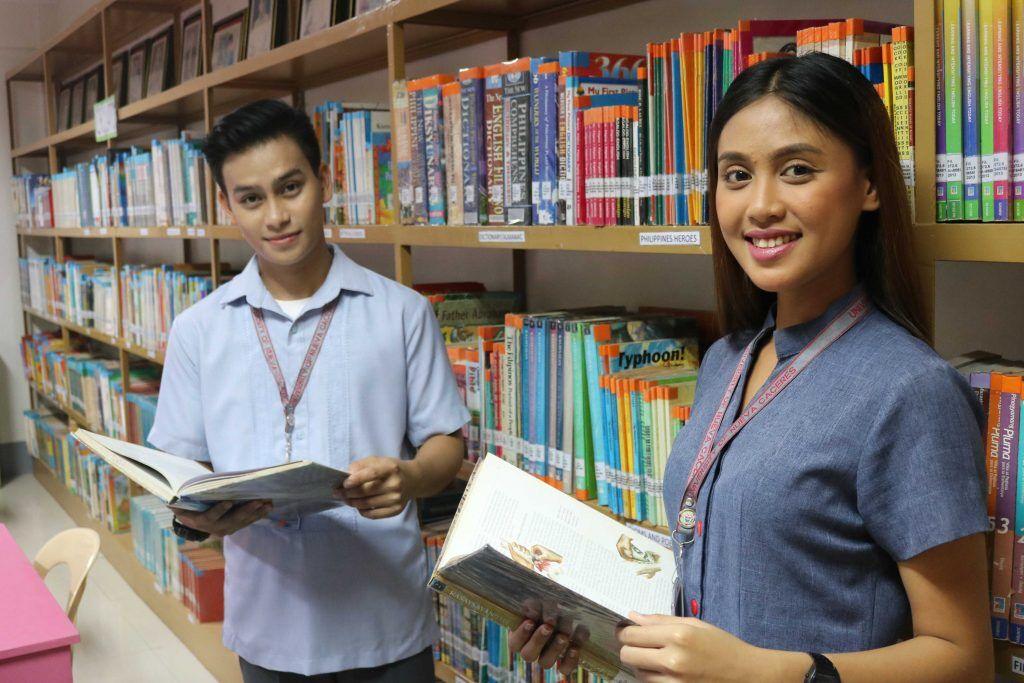
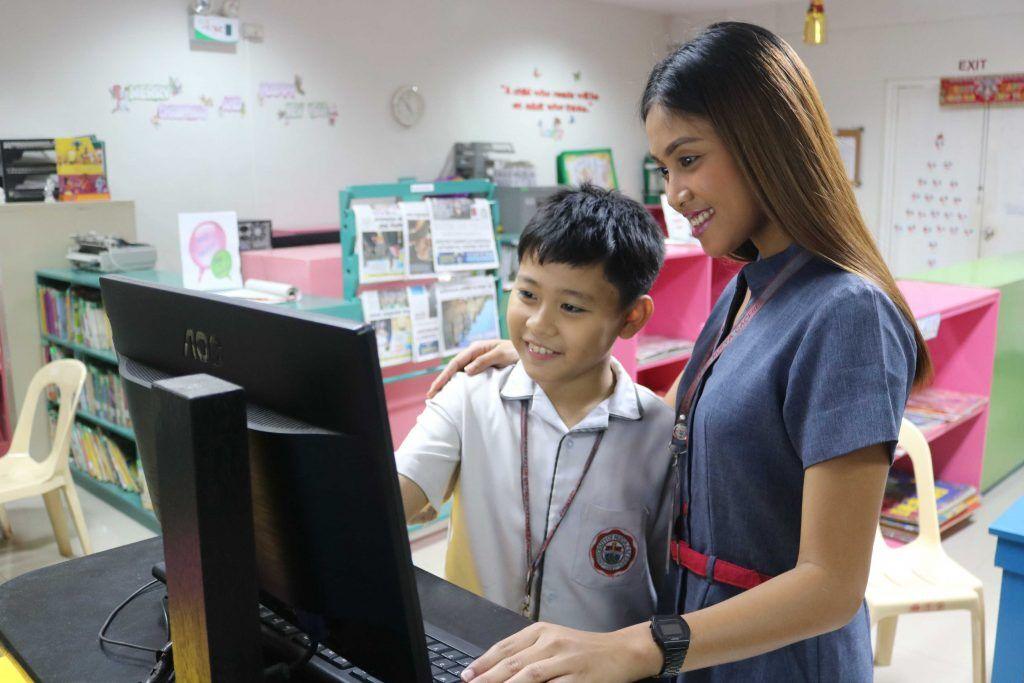
Graduates of the BS Forensic Science program shall be able to:
a. Conduct forensic investigations by applying scientific principles, techniques, and tools to collect, preserve, and analyze physical evidence.
b. Utilize advanced laboratory skills and technologies in forensic biology, forensic chemistry, and other specialized areas to produce accurate and reliable results.
c. Demonstrate critical thinking and problem-solving skills in analyzing and interpreting forensic evidence to support criminal and civil cases.
d. Exhibit a strong understanding of the legal system, including laws, regulations, and ethical guidelines relevant to forensic science.
e. Internalize the importance of ethical behavior, professionalism, and the protection of human rights in the practice of forensic science.
f. Communicate forensic findings effectively in both written and oral formats to diverse audiences, including law enforcement, legal professionals, and the public.
g. Collaborate effectively with multidisciplinary teams in crime scene investigations, laboratory analysis, and judicial processes.
h. Engage in lifelong learning and professional development to stay abreast of advancements in forensic science and technology.
i. Promote public safety and justice by ensuring the accurate application of forensic science in the resolution of criminal cases.
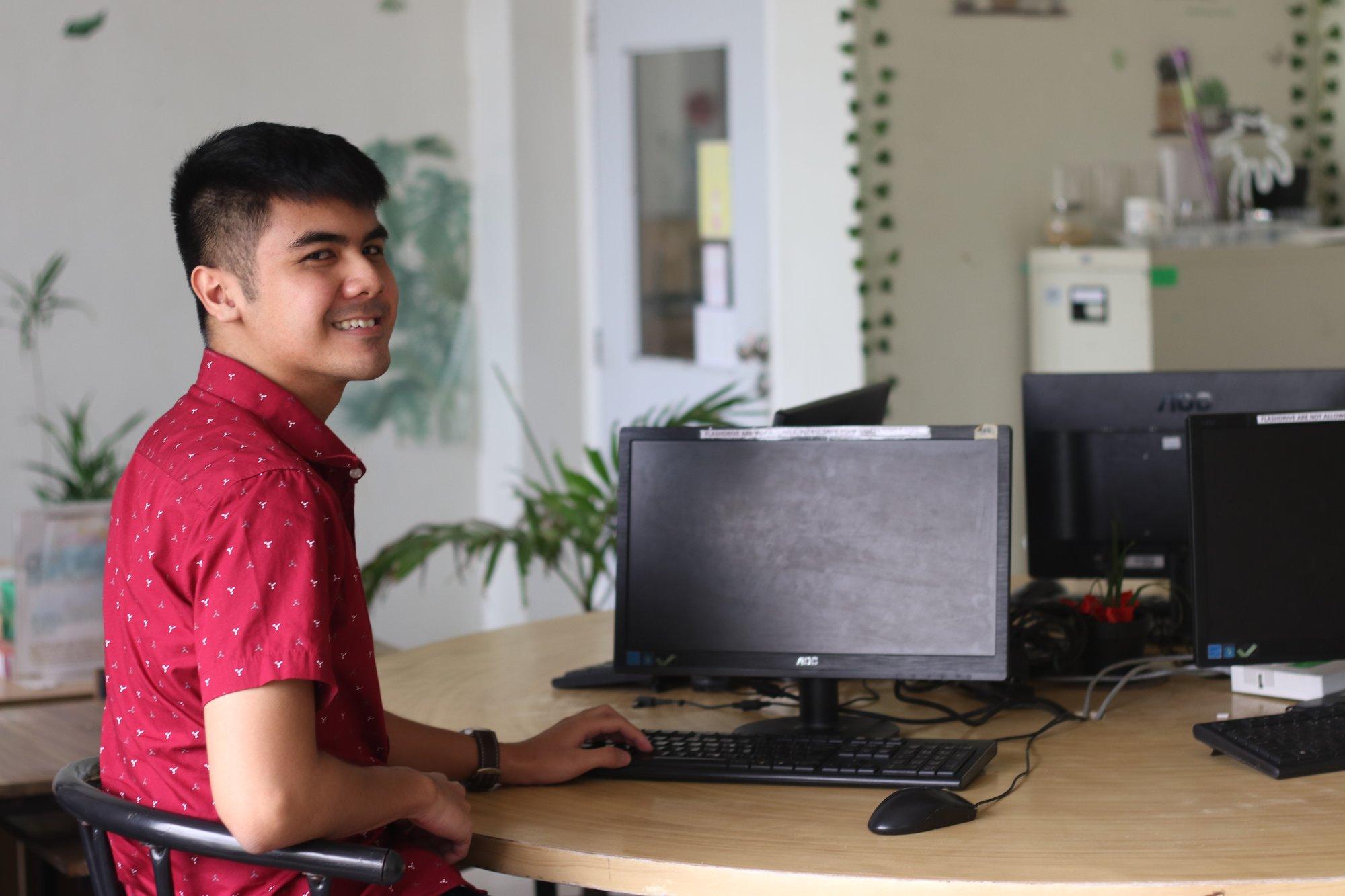
1. Conduct research and inquiry on the nature, causes, treatment, or punishment of criminal behavior and how criminal justice agencies function and respond to crime, criminals and victims.
2. Pactice careers in crime prevention, law enforcement, scientific crime detection, correctional administration, public safety and allied fields.
3. Demonstrate leadership, integrity, honesty, and accountability, while respecting human rights and fostering positive relationships within their community and country.
Graduate of the BS Criminology program equipped with relevant knowledge, skills, attitude and values shall be able to :
a. Conduct criminological research on crimes, crime causation, victims, and offenders to include deviant behavior;
b. Internalize the concepts of human rights and victims welfare;
c. Demonstrate competence and broad understanding in law enforcement administration, public safety, and criminal justice;
d. Utilize criminalistics or forensic science in the investigation and detection of crimes;
e. Apply the principles and jurisprudence of criminal law, evidence, and criminal jurisprudence;
f. Ensure offenders’ welfare and development for their reintegration into the community.

Three to five years after graduation, Master in Library and Information Science graduates are expected to become globally competitive librarians through the aid of continuing education and by gaining leadership responsibilities as guided by the university and the college’s core values.
Upon graduation, the graduate of this program can:

Bachelor of Science in Business Administration major in Financial Management
Bachelor of Science in Business Administration major in Marketing Management
Bachelor of Science in Business Administration major in Human Resource Management
Bachelor of Science in Business Administration major in Operations Management
Bachelor of Science in Business Administration major in Digital Marketing
Practice one’s career as ethically and socially responsible professionals who contribute to uphold the UNC core values
Contribute to nation-building by assuming leadership responsibilities and demonstrating competencies required in Marketing and allied fields.
By the time of graduation, the students of the BSBA program shall have the ability to:
| PO a | Communicate clearly and effectively with stakeholders both in oral and written forms. |
| PO b | Work effectively and independently in multi-disciplinary and multi-cultural teams (PQF level 6 descriptor) |
| PO c | Promote “Filipino historical and cultural heritage” (based on RA 7722) |
| PO d | Act in recognition of personal and professional development |
| PO e | Implement business-related activities by applying the basic functions of management and basic concepts that underlie in each of the functional areas of business (marketing, finance, human resource, production/operation) |
| PO f | Conduct business research, as a tool to critically, analytically and creatively solve problems and drive results |
| PO g | Employ technology as a business tool in capturing financial and non-financial information, generating reports and making decisions. |
| PO h | Apply knowledge and skills to successfully respond to various types of assessments, e.g. certifications. |
| PO i | Analyze the business environment to innovate business ideas based on emerging industry. |
| PO j | Maintain a commitment to good corporate citizenship, social responsibility and ethical practice in the conduct of business or profession. |
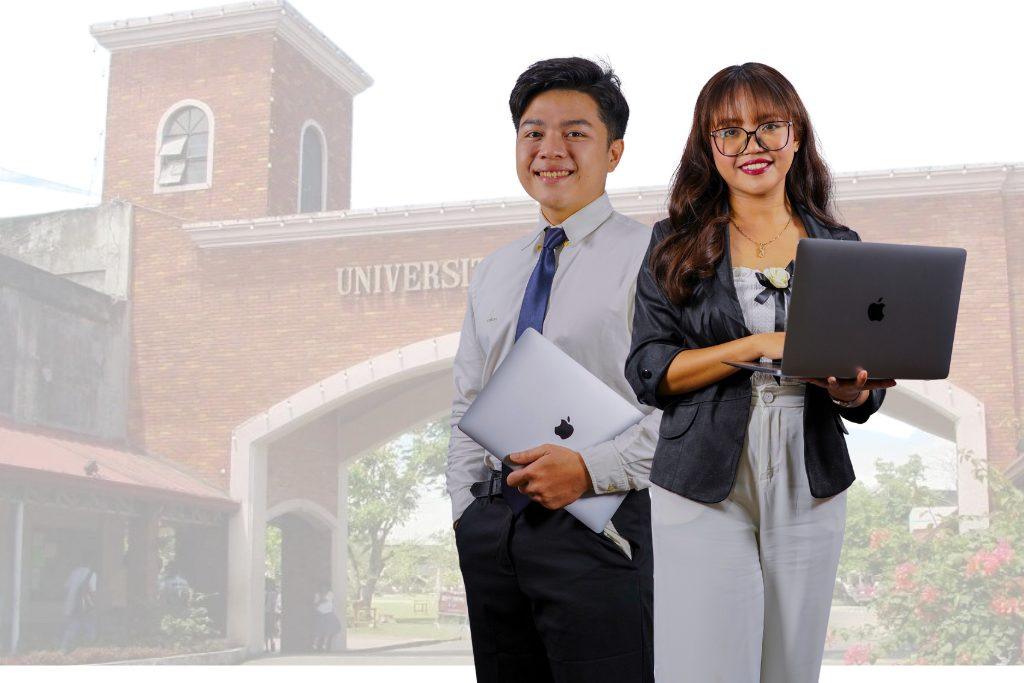
Three to five years after graduation, ACT alumni shall:
PO1: Recognize the need, and have the ability, to engage in independent learning for continual development as a computing professional.
PO2: Effectively communicate orally and in writing using both English and Filipino.
PO3: Work effectively either independently or as a member of a team.
PO4: Act in recognition of professional, social, and ethical responsibility.
PO5: Preserve and promote “Filipino historical and cultural heritage” (based on RA 7722).
PO6: Assist in analyzing complex problems.
PO7: Apply modern computing technologies to solve problems.
PO8: Develop computing solutions.
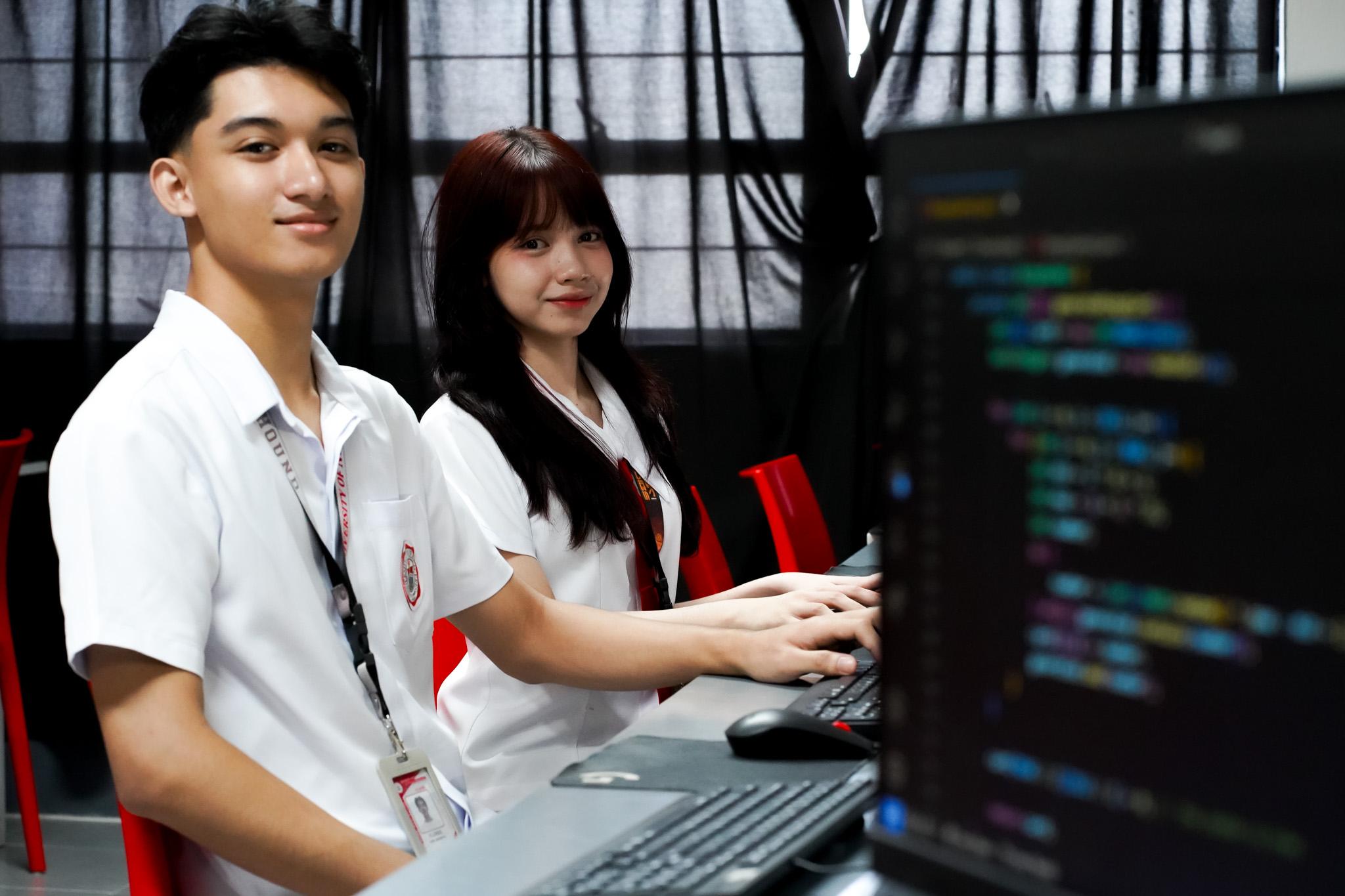
Three to five years after graduation, the BSIT alumni shall:
PO1: Apply knowledge in computing, science, and mathematics in developing IT solutions
PO2: Apply best practices and standards in developing IT solutions
PO3: Define the computing requirements appropriate to the solution of a complex problem
PO4: Analyze user needs in the selection, creation, evaluation and administration of computer-based systems
PO5: Develop IT solutions to meet the needs and requirements under various constraints
PO6: Integrate IT-based solutions into the user environment
PO7: Apply knowledge through the use of current techniques, skills, tools, and practices necessary for the IT profession
PO8: Function effectively as a member or leader of the development team recognizing the different roles to accomplish a common goal
PO9: Provide technical assistance in the creation of an effective IT project plan
PO10: Communicate effectively, both oral and written with the computing community and society
PO11: Analyze the local and global impact of computing information technology on individuals, organization and society
PO12: Apply appropriate professional, ethical, and legal practices in the utilization of information technology
PO13: Develop the skills needed to engage in independent and lifelong learning

Three to five years after graduation, Computer Science alumni shall:
PO1: Apply knowledge of computing fundamentals, specialization, and domain knowledge in the conceptualization of computing solutions from defined problems and requirements.
PO2: Formulate solutions for complex computing problems and requirements using fundamental principles of mathematics, computing sciences, and relevant domain principles based on literature
PO3: Apply mathematical foundation, algorithmic principles, and computing theories in the modeling and design of computing solutions.
PO4: Identify the information security issues in relation to the design and development of computer-based systems.
PO5: Develop solutions for complex computing problems to meet specified needs with appropriate consideration to cultural, societal, and environmental considerations.
PO6: Apply appropriate techniques, resources, and modern computing tools to solve complex computing activities.
PO7: Function effectively as a member or leader of the development team recognizing the different roles to accomplish a common goal
PO8: Communicate effectively, both oral and written, with the computing community and society.
PO9: Apply appropriate professional, ethical, and legal practices in the utilization of computer technology.
PO10: Develop the skills needed to engage in independent and lifelong learning.
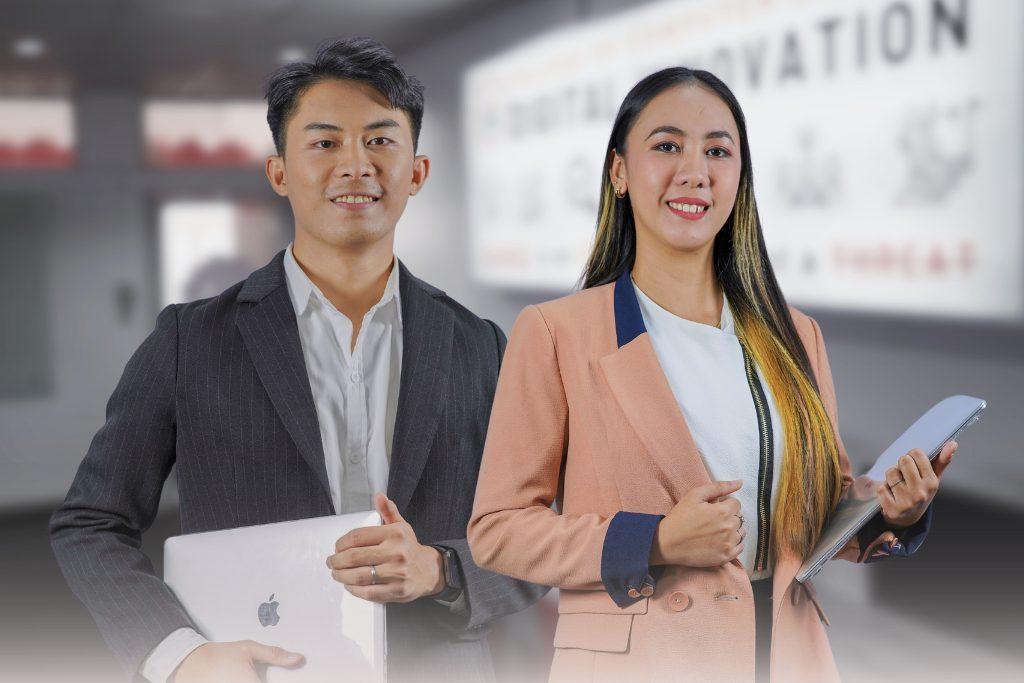
Three to five years after graduation, LIS alumni shall:
PO1: Select, evaluate, organize, and disseminate print, multimedia, electronic and digital information resources
PO2: Communicate effectively, both oral and written, using appropriate levels of discourse.
PO3: Demonstrate logical and systematic approaches to the accomplishment of tasks
PO4: Formulate objectives, policies and processes as well as design and manage resources in anticipation of future educational or organizational changes.
PO5: Propose effective library information science-based solutions appropriate to identified problems and requirements.
PO6: Identify the information needs of the users to be able to evaluate and improve the practices and services of the library
PO7: Work well in groups and seek ways to build team efforts toward solving problems and achieving common goals
PO8: Determine the different library automation systems and the use of computer hardware, software, and peripherals for library use
PO9: Develop information technology solutions for libraries.
PO10: Conduct significant research projects that will benefit the library and the organization.
PO11: Evaluate information policy and ethical issues applicable in local, national or global context.
PO12: Participate in continuing education activities organized by library associations and other entities

Bachelor of Science in Business Administration major in Financial Management
Bachelor of Science in Business Administration major in Marketing Management
Bachelor of Science in Business Administration major in Human Resource Management
Bachelor of Science in Business Administration major in Operations Management
Bachelor of Science in Business Administration major in Digital Marketing
Practice one’s career as ethically and socially responsible professionals who contribute to uphold the UNC core values
Contribute to nation-building by assuming leadership responsibilities and demonstrating competencies required in Marketing and allied fields.
By the time of graduation, the students of the BSBA program shall have the ability to:
| PO a | Communicate clearly and effectively with stakeholders both in oral and written forms. |
| PO b | Work effectively and independently in multi-disciplinary and multi-cultural teams (PQF level 6 descriptor) |
| PO c | Promote “Filipino historical and cultural heritage” (based on RA 7722) |
| PO d | Act in recognition of personal and professional development |
| PO e | Implement business-related activities by applying the basic functions of management and basic concepts that underlie in each of the functional areas of business (marketing, finance, human resource, production/operation) |
| PO f | Conduct business research, as a tool to critically, analytically and creatively solve problems and drive results |
| PO g | Employ technology as a business tool in capturing financial and non-financial information, generating reports and making decisions. |
| PO h | Apply knowledge and skills to successfully respond to various types of assessments, e.g. certifications. |
| PO i | Analyze the business environment to innovate business ideas based on emerging industry. |
| PO j | Maintain a commitment to good corporate citizenship, social responsibility and ethical practice in the conduct of business or profession. |

Within three to five years, graduates of BS Entrepreneurship program are expected to:
By the time of graduation, the students of the BSENTREP program shall have the ability to:
| PO a | Communicate clearly and effectively with stakeholders both in oral and written forms. |
| PO b | Work effectively and independently in multi-disciplinary and multi-cultural teams (PQF level 6 descriptor) |
| PO c | Promote “Filipino historical and cultural heritage” (based on RA 7722) |
| PO d | Scan and analyze the environment to determine business opportunities and develop their profitability profiles from which entrepreneurial ventures can be selected from. |
| PO e | Operate and manage an enterprise by mobilizing the necessary human, financial, logistical, and technical requirements based on the prepared business plan, and compliant with requirements for business operation. |
| PO f | Apply entrepreneurial management in any organization other than your own enterprise and technology skills as required by the business environment. |
| PO g | Maintain a commitment to good corporate citizenship, social responsibility and ethical practice in the conduct of business. |
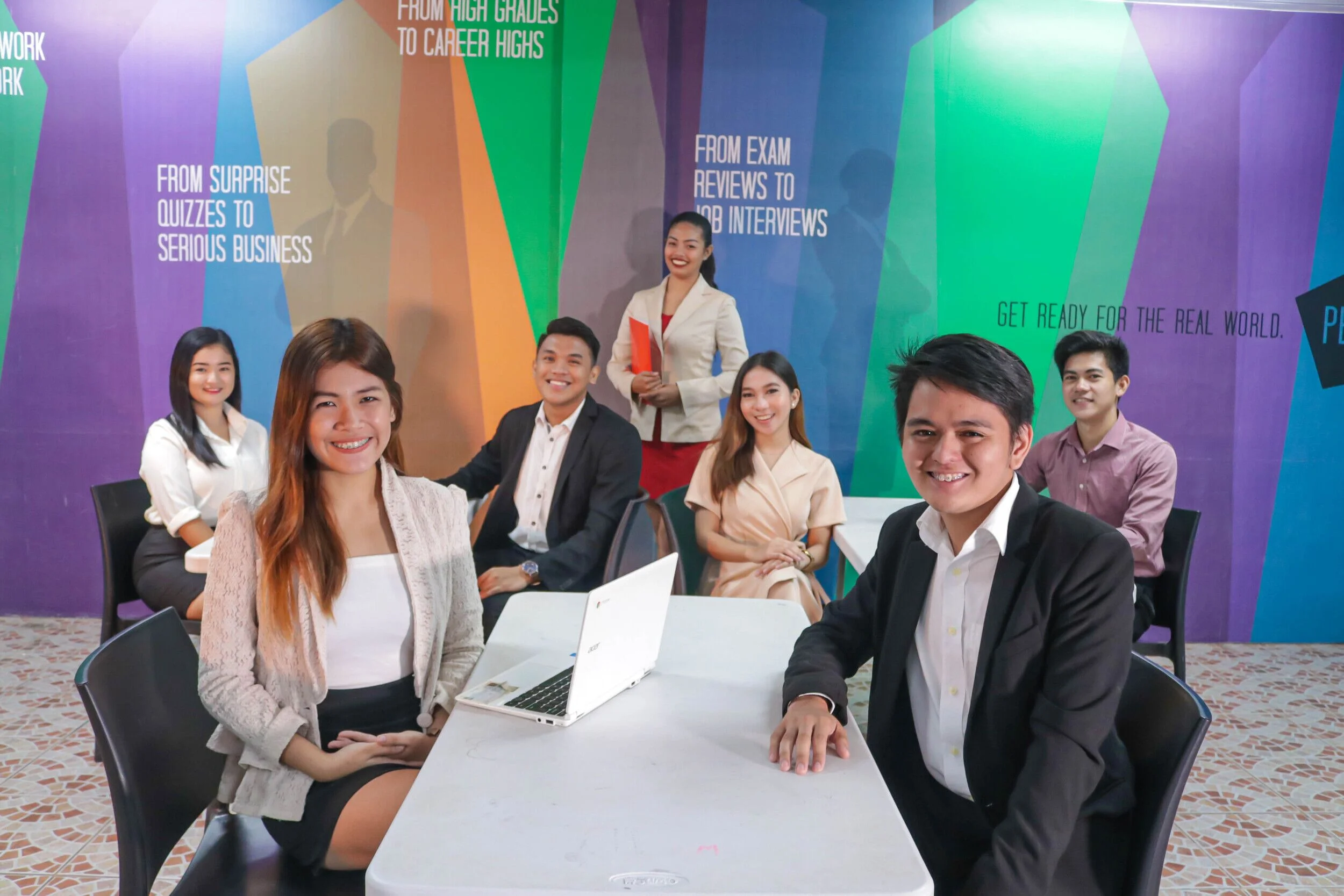
Within three to five years, graduates of BSHM Program should have
1. Become successful hospitality professionals who can help in the growth of the tourism industry.
2. Demonstrate managerial competencies that are needed to execute tasks in the hospitality industry, and one who consistently strive for excellence in everything that they will do.
3. Promote professionalism in the hospitality practice
By the time of graduation, the students of the BS HOSPITALITY MANAGEMENT AND BS TOURISM MANAGEMENT program shall have the ability to:
| POa | Communicate clearly and effectively with stakeholders both in oral and written forms. |
| POb | Work effectively and independently in multi-disciplinary and multi-cultural teams (PQF level 6 descriptor) |
| POc | Act in recognition of personal and professional development |
| POd | Promote “Filipino historical and cultural heritage” (based on RA 7722) |
| POe | Implement business- related activities by applying the basic functions of management and basic concepts that underlie in each of the functional areas of business (marketing, finance, human resource, production/operation) |
| POf | Produce and manage food products and services complying with enterprise standards |
| POg | Apply management skills in F & B service and operations |
| POh | Implement and evaluate MICE activities |
| POi | Perform various housekeeping services for guest and facility operations |
| POj | Plan and implement a risk management program to provide a safe and secure workplace |
| POk | Provide food & beverage service and manage the operation seamlessly based on industry standards |
| POl | Maintain a commitment to good corporate citizenship, social responsibility and ethical practice in performing function as part of the hospitality industry |
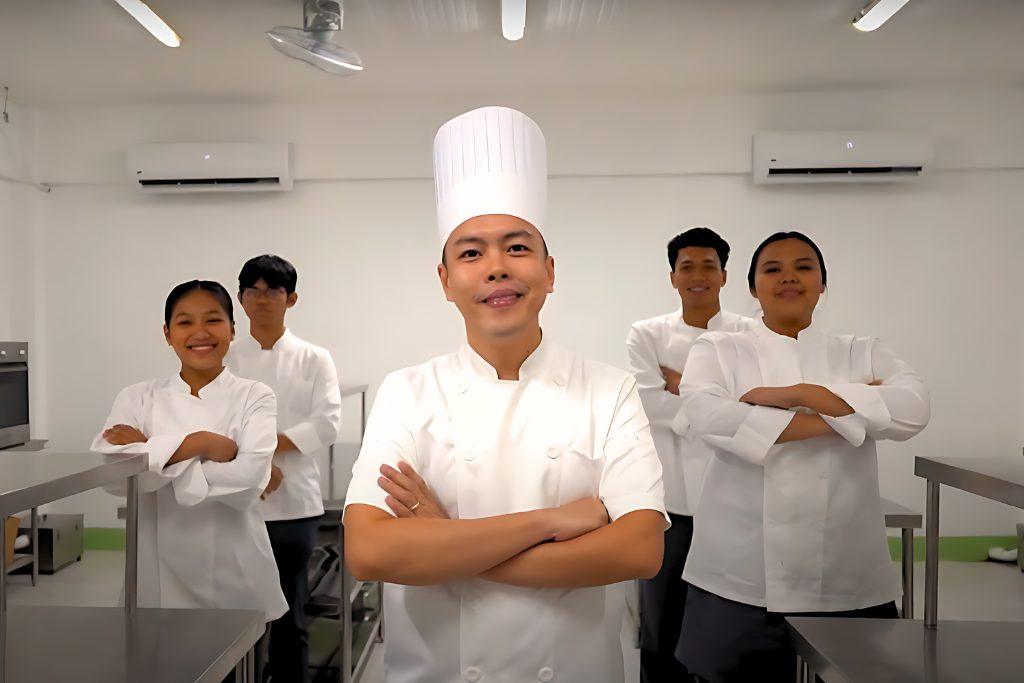
Within three to five years, graduates of BSTM Program should have
1. Become successful hospitality professionals who can help in the growth of the tourism industry.
2. Demonstrate managerial competencies that are needed to execute tasks in the hospitality industry, and one who consistently strive for excellence in everything that they will do.
3. Promote professionalism in the hospitality practice
By the time of graduation, the students of the BS TOURISM MANAGEMENT program shall have the ability to:
| POa | Communicate clearly and effectively with stakeholders both in oral and written forms. |
| POb | Work effectively and independently in multi-disciplinary and multi-cultural teams (PQF level 6 descriptor) |
| POc | Act in recognition of personal and professional development |
| POd | Promote “Filipino historical and cultural heritage” (based on RA 7722) |
| POe | Implement business- related activities by applying the basic functions of management and basic concepts that underlie in each of the functional areas of business (marketing, finance, human resource, production/operation) |
| POf | Produce and manage food products and services complying with enterprise standards |
| POg | Apply management skills in F & B service and operations |
| POh | Implement and evaluate MICE activities |
| POi | Perform various housekeeping services for guest and facility operations |
| POj | Plan and implement a risk management program to provide a safe and secure workplace |
| POk | Provide food & beverage service and manage the operation seamlessly based on industry standards |
| POl | Maintain a commitment to good corporate citizenship, social responsibility and ethical practice in performing function as part of the hospitality industry |
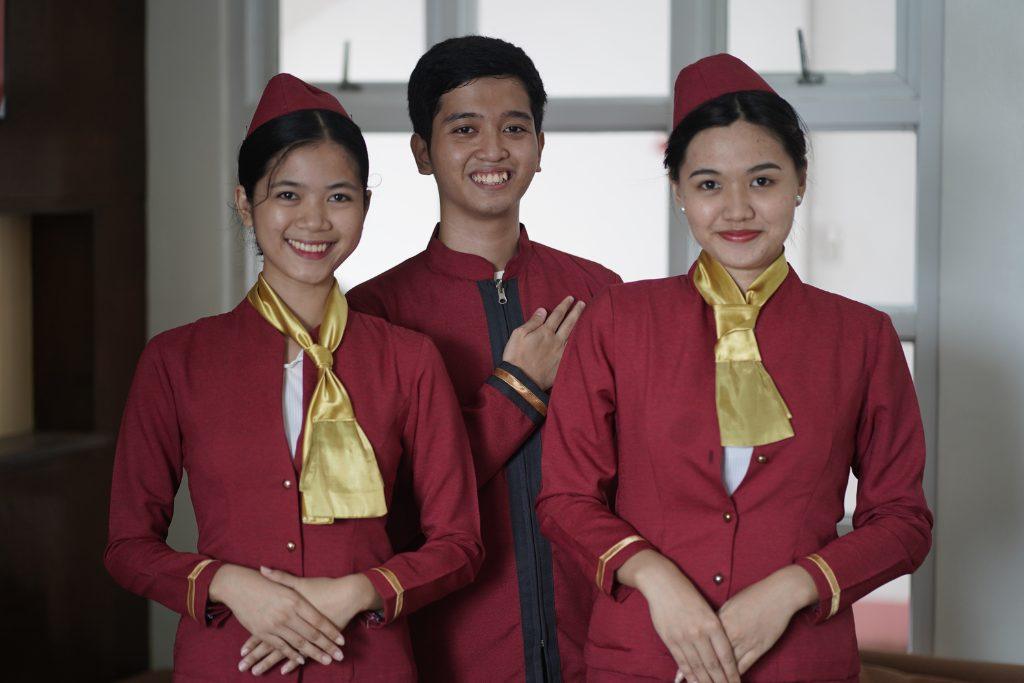
By the time of graduation, the students of the BS Accountancy program shall have the ability to:
| PO a | Communicate clearly and effectively with stakeholders both in oral and written forms. |
| PO b | Work effectively and independently in multi-disciplinary and multi-cultural teams (PQF level 6 descriptor) |
| PO c | Promote “Filipino historical and cultural heritage” (based on RA 7722) |
| PO d | Act in recognition of personal and professional development |
| PO e | Implement business- related activities by applying the basic functions of management and basic concepts that underlie in each of the functional areas of business (marketing, finance, human resource, production/operation) |
| PO f | Resolve business issues and problems, with global perspective and particular emphasis on matters confronting financial statement preparers and users, using their knowledge and technical proficiency in the areas of financial accounting, cost accounting, management accounting, auditing, taxation, business laws, regulatory framework for business transactions, accounting information systems and other related areas. |
| PO g | Conduct accounting research, as a tool to critically, analytically and creatively solve problems and drive results |
| PO h | Employ technology as a business tool in capturing financial and non-financial information, generating reports and making decisions. |
| PO i | Apply knowledge and skills to successfully respond to various types of assessments (including professional licensure and certifications |
| PO j | Maintain a commitment to good corporate citizenship, social responsibility and ethical practice in performing function as accountants |
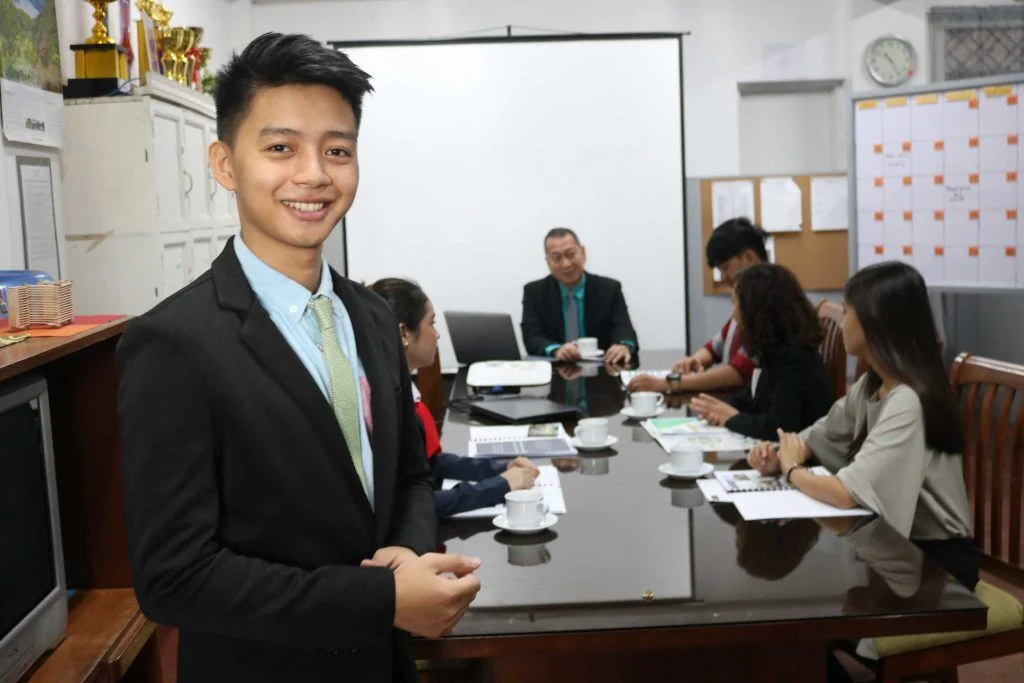
The Expanded Tertiary Education Equivalency and Accreditation Program of UNC College of Business and Accountancy envisions its graduates to attain specialized learning with improved managerial and entrepreneurial skills, and responsive to the demands of the global business environment.
To develop globally competitive and competent professionals in various business fields through the provision of appropriate curricular programs that will transform individuals into competent and proactive professionals and entrepreneurs possessed with competence, integrity, and moral and social responsibility.
The expanded tertiary Education Equivalency and Accreditation Program (ETEEAP) of the University of Nueva Caceres has the following objectives:
1.To accredit and assess prior formal, non-formal and informal learning of individuals towards the granting of equivalency certificates in higher education.
2.To fully develop the system of equivalency and accreditation in higher education as a bridging mechanism for the flexible entry and exchange between the formal and the non-formal and informal systems of higher learning.
3.To enable individuals to have access to higher-value jobs and wider career opportunities.
4.To implement the accreditation and equivalency program in Bachelor of Science in Business Administration major in: Financial Management, Marketing Management, Operations Management, and Human Resource Development Management.
5.To award higher education degrees to deserving applicants in the ETEEAP.
The ETEEAP of the UNC implements the following policies:
1. Adheres to the principles of truth, wisdom and knowledge for the service of God, country and humanity.
2.Ensures the highest standards of quality that are acceptable to employees and academe, consistent with standards of practice of professions.
3.Provides non-discrimination entry of participants in the program.
4.Ensures fairness, creativity and appropriateness of the assessment process.
5.Ensures that formation programs of the University are implemented in the ETEEAP.
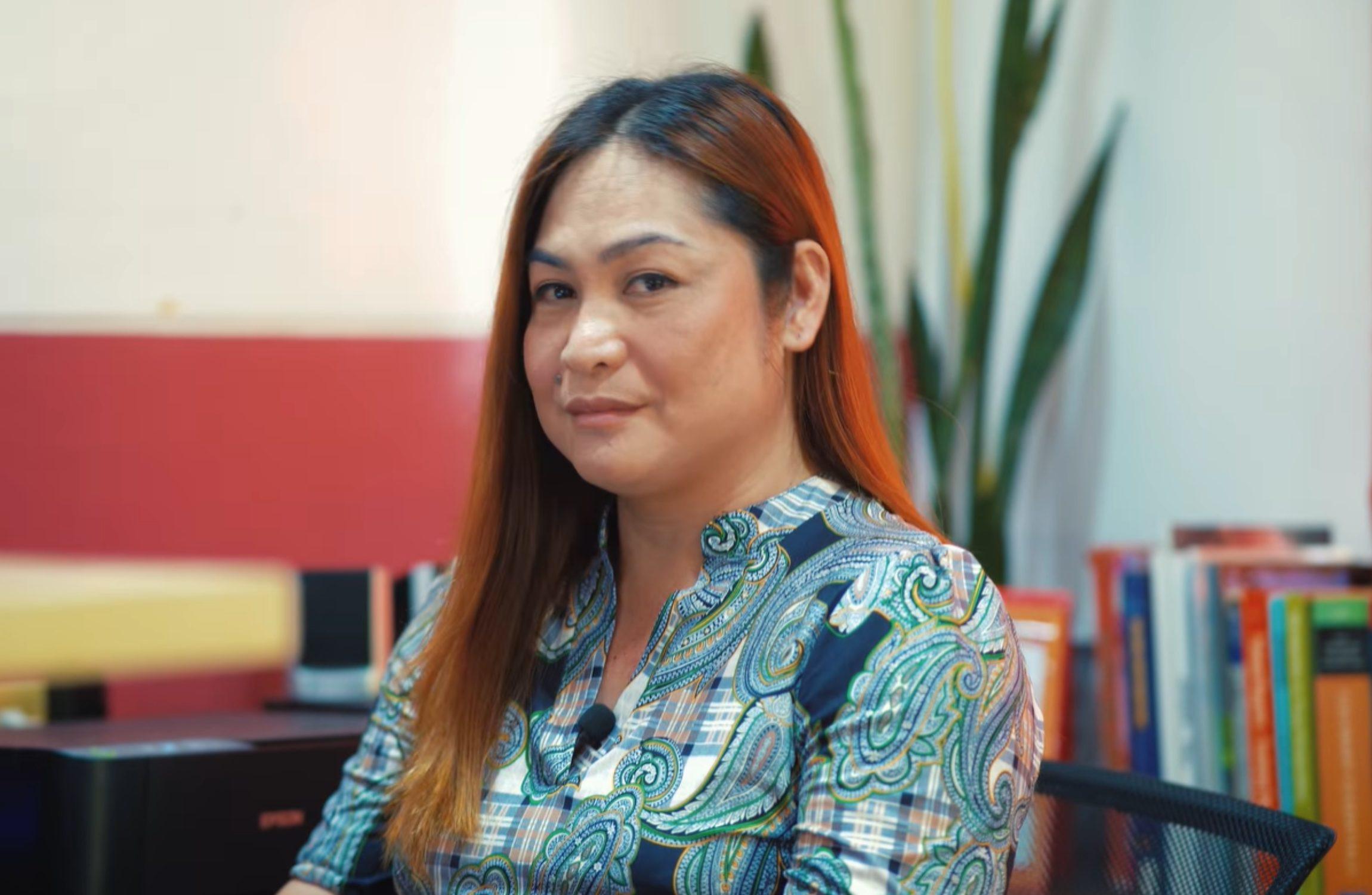
Within three to five years graduates of BS Biology should be able to:
a. Develop an in-depth understanding of the basic principles governing the science of life;
b. Utilize techniques/procedures relevant to biological research work in laboratory or field settings;
c. Apply basic mathematical and statistical computations and use of appropriate technologies in the analysis of biological data;
d. Extend knowledge and critically assess current views and theories in various areas of the biological sciences.
By the time of graduation, the students of the AB Political Science program shall have the ability to:
a. Classify the major concepts in the discipline;
b. Define the distinctiveness of the discipline, its subfields, theories and methods;
c. Conduct research using appropriate quantitative and qualitative methods guided by theories or conceptual
frameworks;
d. Demonstrate written, visual and oral presentation skills to produce reports;
e. Critique current issues based on substantive understanding of the historical and contemporary developments in
the national and global contexts;
f. Develop a predisposition towards ethical political involvement and practice in various forms.
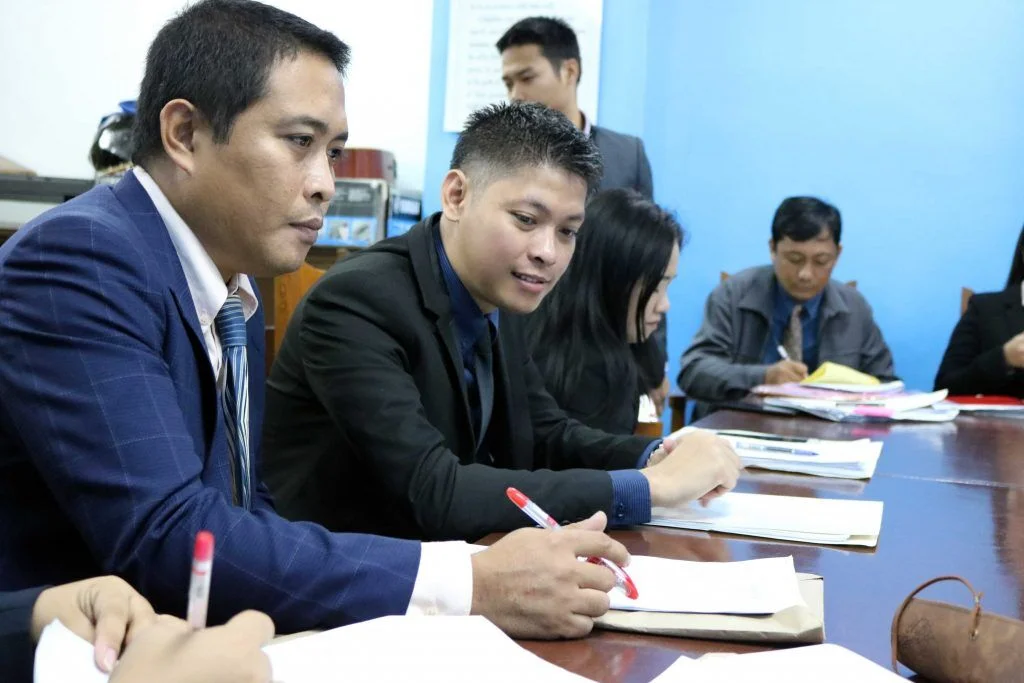
Graduates of Bachelor of Arts in Political Science Program should be able to:
1. Acquire a comprehensive grasp of the distinctive concepts, aspects and sub-fields of Political Science as well as their application in the social and political spheres.
2. Develop a drive to participate in public affairs and in current issues, commitment to upholding democracy, vigilance in the protection of rights and a deep devotion to the country.
By the time of graduation, the students of the AB Political Science program shall have the ability to:
a. Classify the major concepts in the discipline;
b. Define the distinctiveness of the discipline, its subfields, theories and methods;
c. Conduct research using appropriate quantitative and qualitative methods guided by theories or conceptual
frameworks;
d. Demonstrate written, visual and oral presentation skills to produce reports;
e. Critique current issues based on substantive understanding of the historical and contemporary developments in
the national and global contexts;
f. Develop a predisposition towards ethical political involvement and practice in various forms.

Within three to five years, graduates of AB Psychology Program should have:
1. Possessed wholistic expertise so that they are competent to hold positions in professional practice or research and become expert in psychological field;
2. Acquired competences needed to be globally competitive and continuously adapt to the changes and advancement in their field of psychology.
By the time of graduation, the students of the AB Political Science program shall have the ability to:
a. Demonstrate and apply the methods of psychological inquiry in building knowledge on the local culture and context (psychological research).
b. Demonstrate and apply psychological theories and methods in the personal and professional; setting (application of psychology).
c. Demonstrate capability for self-reflection and independent learning in graduate education or in a professional context (independent learning).
d. Demonstrate professional and ethical behaviors in research and practice in Psychology (ethics)










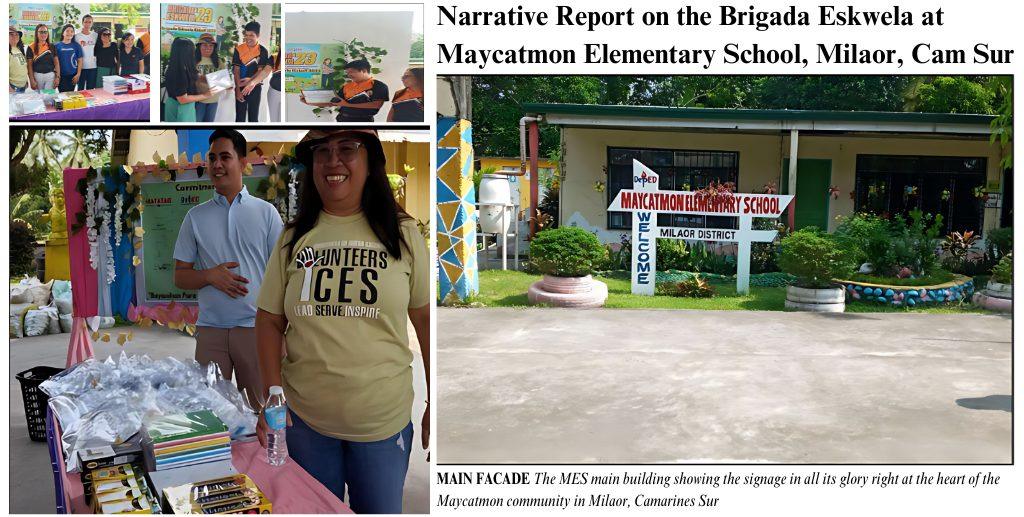

[ ] Verification Slip (Accounting Office Window 5)
[ ] Previous Semester Grades (Registrar’s Office)
[ ] Supporting documents if there are changes in profile
